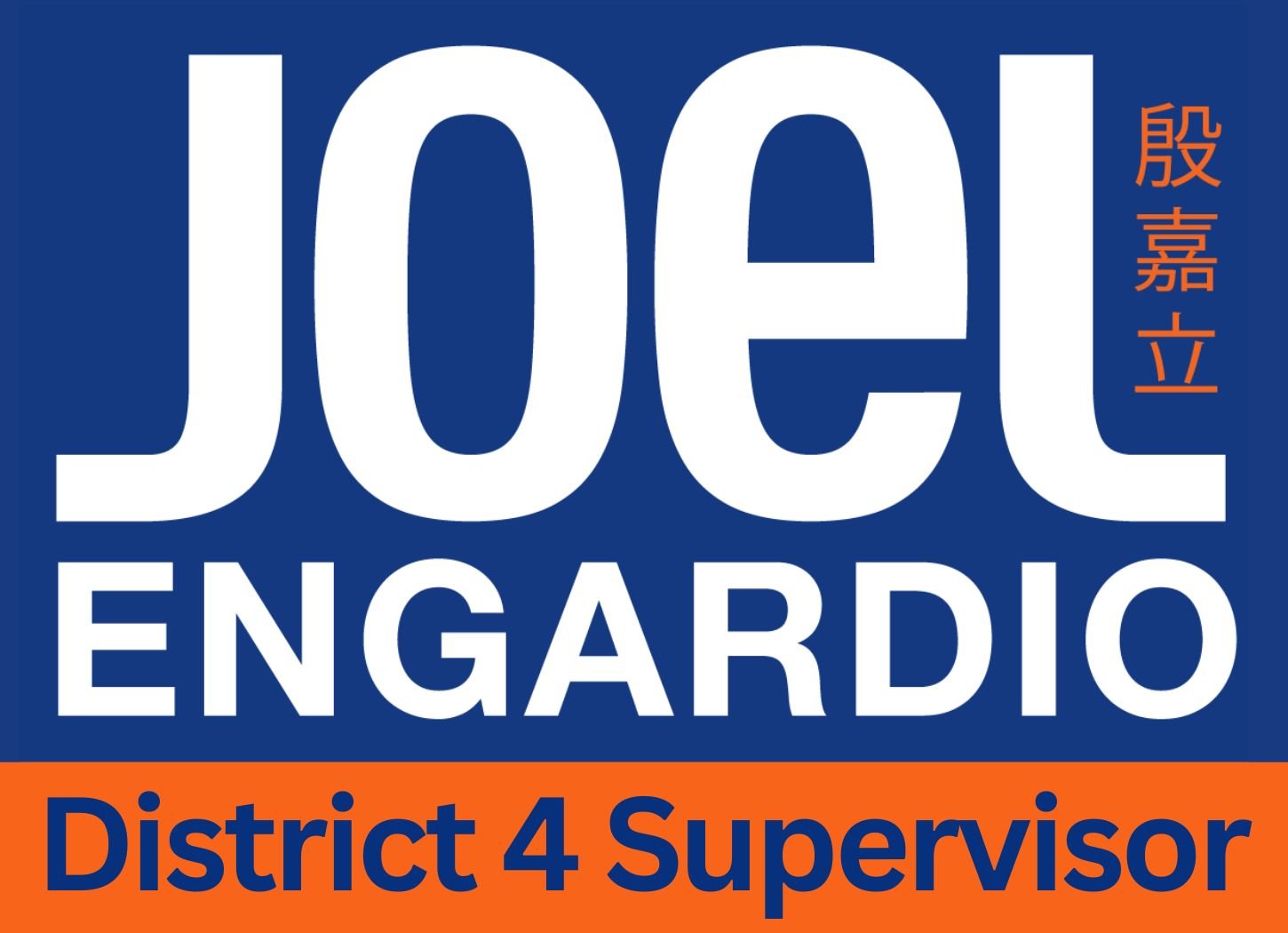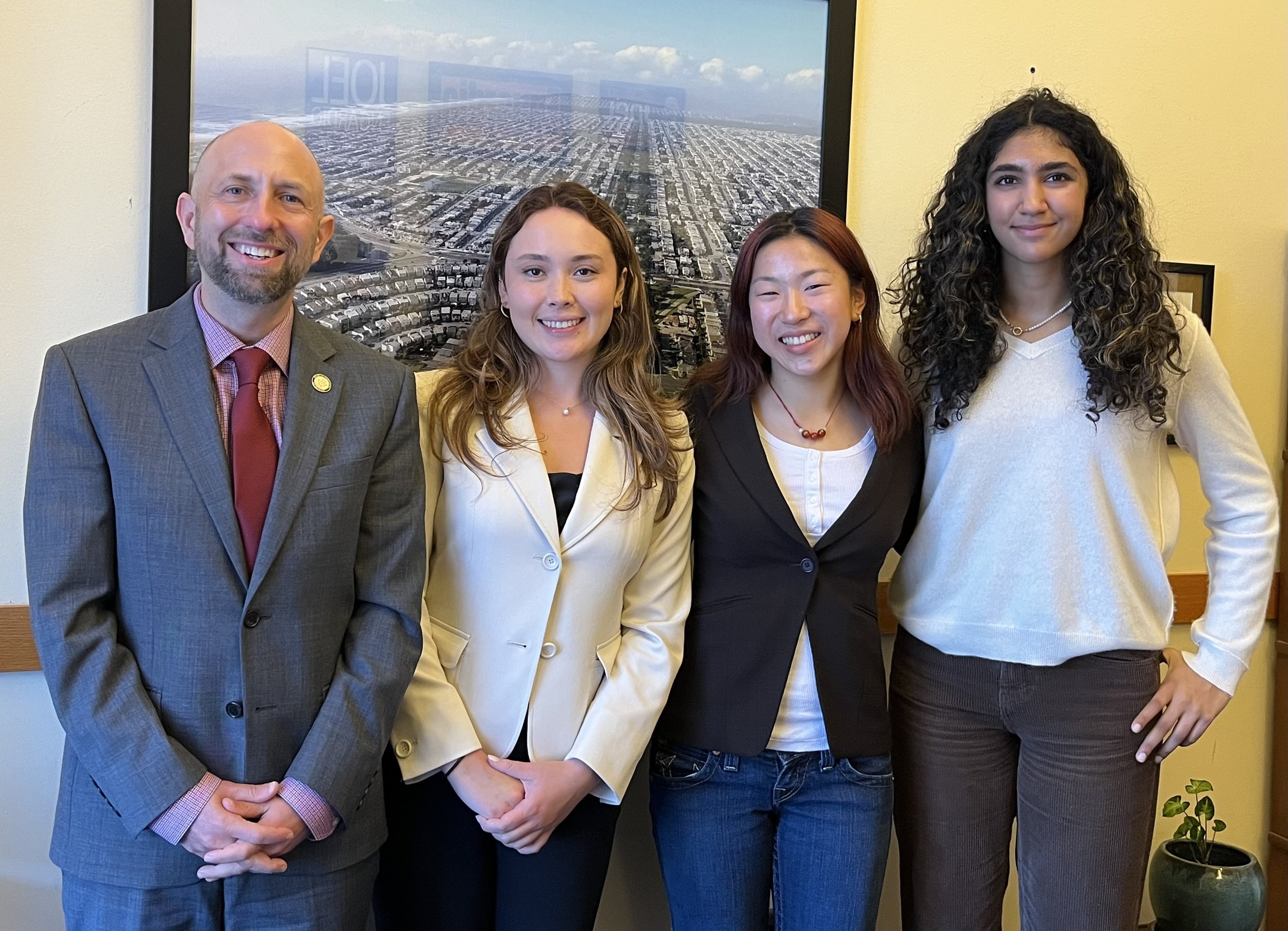Intern Voice: Veronica O’Brien on the Case for a Community Benefit District in the Sunset
Student intern Veronica O’Brien
Intern Voice features student interns in Supervisor Joel Engardio’s office who researched issues and wrote OpEds for their final project.
By Veronica O’Brien
The Sunset district is a vibrant and diverse community that boasts many small businesses and is home to numerous tight-knit neighborhoods. As the district continues to evolve, the implementation of a Community Benefit District, or CBD, has become a subject of debate among residents, businesses, and local officials. After researching the background of CBDs in San Francisco and sitting down with Noe Valley CBD’s executive director, Deborah Nieman, I’ve concluded that the addition of a CBD to particular corridors in the Sunset District would be a worthwhile pursuit. The purpose of this op-ed is to advocate for your support in establishing a CBD within these parts of the Sunset District, which I believe would greatly enhance community life and foster sustainable growth.
One of the primary advantages of establishing a CBD, in general, is the opportunity to boost activity in the community and create a safer environment for residents and visitors of the area. As mentioned in the CBD impact analysis performed by the San Francisco Office of Economic and Workforce Development, "perception and reality of cleanliness in San Francisco are poor, and CBD/BIDs could be critical game-changers if deeper partnerships with the City and County of San Francisco are enabled." As Ms. Nieman explained to me, the process of creating a CBD involves gaining the approval of property owners in the districts who are willing to pay a tax that will fund the CBD. Once a CBD is approved, funds typically go towards safety benefits such as street patrols, surveillance systems, and improved lighting, in addition to aesthetic features that encourage visitors to patronize small businesses in the area. An increase in safety measures ensures the district remains a desirable place to live, work, and visit.
Aside from safety, CBDs often allocate funds towards revitalizing public spaces, which parts of the Sunset could certainly benefit from. Common beautification projects undertaken by CBDs include the creation of green spaces, public art installations, and street improvements. By enhancing the aesthetic appeal of the district, patrons are more likely to be attracted to the area, and once again, the local economy will ultimately feel a boost.
On the topic of local businesses, which we all know are truly the backbone of the district and community, CBDs can offer vital support such as marketing and promotional initiatives that stimulate economic activity. CBDs offer an opportunity to create a cohesive identity and marketing strategy for businesses in the area.
While the benefits of establishing a CBD are numerous, there are potential concerns that are important to address. Since CBDs require an additional tax for property owners, it is essential to pinpoint which parts of a district can successfully bear the burden of the tax. Within the Sunset, I've identified Taraval Street, beginning with 16th Ave down to Ocean Beach at 48th Ave, as one corridor in particular that I believe would certainly be able to take on the tax while reaping enormous benefits.
The establishment of a CBD in specific corridors of the Sunset District would promote a stronger, safer, and more vibrant community. With the support of property owners in the area, CBDs are able to manage funds to provide enhanced public spaces, amplify local businesses, and foster community engagement. With the addition of a CBD, the Sunset can build upon its strengths and create a more inclusive and sustainable future. As representatives for the Sunset, it is crucial that we explore this opportunity to implement a CBD that reflects the unique character and aspirations of the district.
Veronica O’Brien is a native San Franciscan who graduated from St. Ignatius High School in the Sunset. She is a rising sophomore at Tulane University in New Orleans where she is studying political science and economics. In her free time, she enjoys reading history, and cooking. In the future, she aspires to work in Washington, D.C. as a legislative assistant.
Read the OpEds by other interns in Supervisor Engardio’s office. Kinnari Atluru points out flaws in the city’s response to homelessness. Linda Ye writes about the potential efficacy of the Drug Market Agency Coordination Center.
We had a talented class of interns this summer who worked in my City Hall office. Three assigned to my chief of staff focused on research. Their final project was to write an OpEd based on what they learned. One intern had completed her first year of college and the others were still in high school. Their focus, talent, and ability to engage in critical thinking gives me hope for the next generation. As the saying goes, “the kids are alright!”


